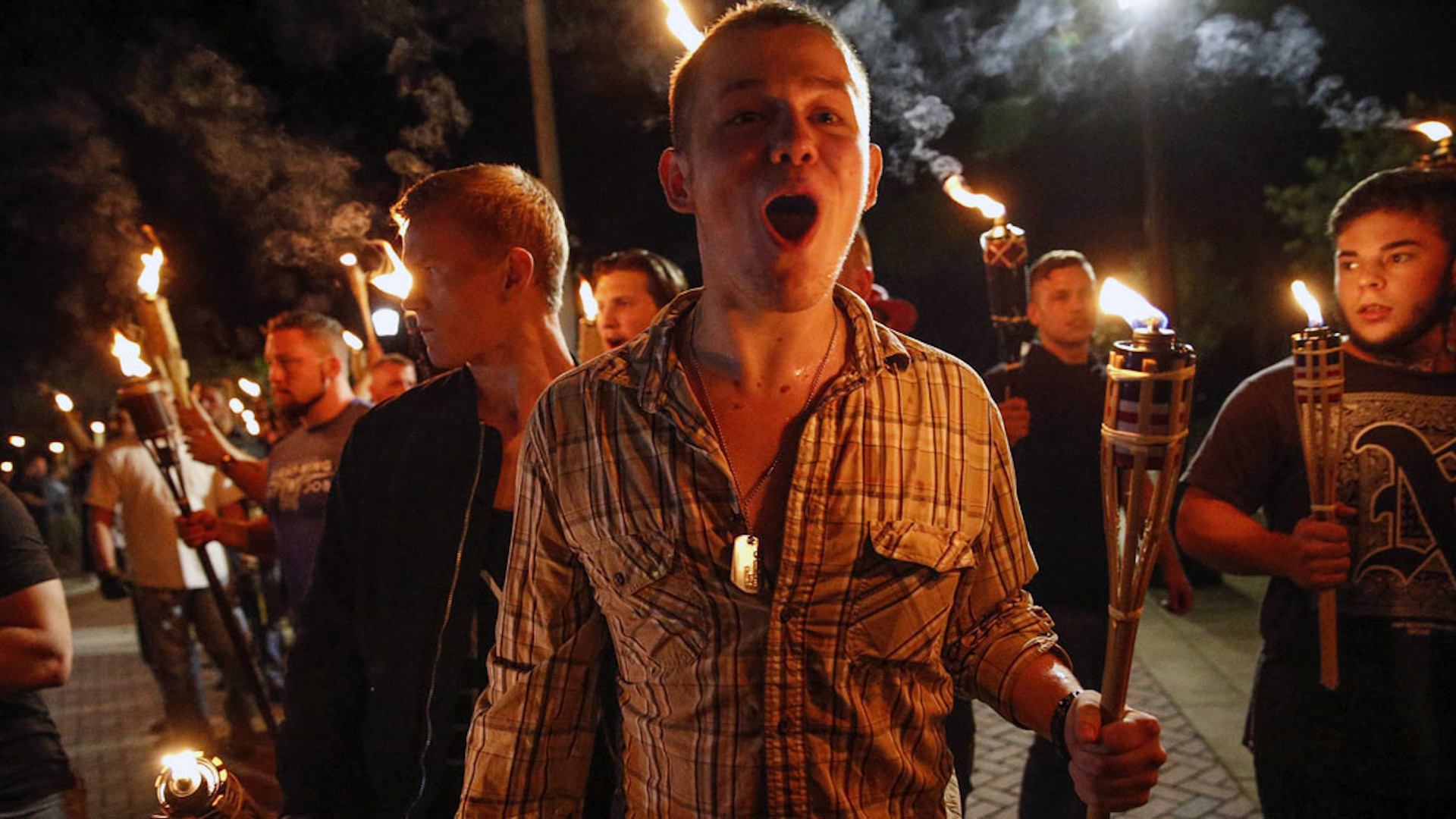

When it comes to extremists within the military, the Defense Department makes a distinction without a difference.
Last updated in February 2012, the Defense Department’s policy bans service members from actively participating in extremist or supremacist groups. DoD Instruction 1325.06 goes on to list what “active participation” in a hate group involves: Fundraising, rallying, recruiting, training members, and so on.
But the U.S. military does not explicitly prohibit service members from belonging to hate groups — just as long as they do not engage in any of the proscribed activities that count as “active participation.”
By any definition, that’s an extremely obvious loophole, since membership in a hate group is the first step toward active participation.
Rep. Jackie Speier (D-Calif.), said she was “flummoxed” when defense officials testified last year that military does not explicitly prohibit troops from being members of extremist groups.
“I find that astonishing,” Speier said in February 2020. “If you’re a member, that’s an activity. I think we need to take a look at that.”
Pentagon spokesman John Kirby recently indicated that Defense Secretary Lloyd Austin and other top military leaders might take a fresh look at whether service members should be involuntarily separated if they join hate groups.
“Right now, membership is not considered inconsistent with service in the military and it really is about what you do with that membership,” Kirby told reporters at a Feb. 5 Pentagon news conference. “I’m not going to be predictive one way or the other about where this discussion is going but I think membership in these groups is certainly something that I would expect for them to look at.”
The issue of extremists in the ranks literally boiled over when rioters assaulted the U.S. Capitol on Jan. 6. Many of the people arrested have ties to the military, including Jacob Fracker, a corporal in the Virginia Army National Guard.
One of the five people killed in the riots was Ashli Babbitt, an Air Force veteran who reportedly embraced QAnon conspiracy theories. She was shot while allegedly trying to force her way into the Capitol building.
Speier recently authored legislation that would have made it illegal under the Uniform Code of Military Justice for service members to commit acts of violent extremism, but it did not criminalize being a member of a hate group.
First reported by John M. Donnelly of Roll Call, the legislation would have made it expressly illegal for service members to commit violent acts that are intended to intimidate or coerce a person or class of people or retaliate against policies of the U.S. government or individual states.
The proposed change to military law was included into a provision of the Fiscal 2021 National Defense Authorization Act, which the Senate ultimately removed from the final version of the legislation, which Congress passed over former President Trump’s veto on Jan. 1, Speier said.
“The Senate eliminated it from the final National Defense Authorization Agreement, claiming they were trying to avoid a veto from President Trump,” Speier said in a statement. “We all know how that turned out.”
“If it had been included in the NDAA [National Defense Authorization Act], it would be law and apply to current service members and even some military retirees who attacked the Capitol on Jan. 6,” Speier continued. “At least now we have a president who takes this threat seriously and I expect my provision will become law as part of this year’s defense policy bill.”
A spokesperson for the Senate Armed Services Committee said the final version of the defense policy bill included other ways to combat extremism within the military, including a provision that establishes a new deputy Defense Department inspector general with a special focus on extremist and criminal gang activity.
“The Uniform Code of Military Justice already offers all the tools necessary to prosecute service members who have committed violent offenses, including any criminal act a violent extremist would potentially commit, and I am confident the UCMJ can be used as needed to protect all members of the military community,” said Sen. Jim Inhofe (R-Okla.), the former chair of the Senate Armed Services Committee. “This kind of behavior directly undermines the ability of our armed forces to perform their constitutionally mandated role of defending the nation.”
But the issue remains that membership in a hate group is not grounds alone for involuntarily separating service members. Until that is fixed, the military cannot begin to find any meaningful solutions to the problem of extremists in the ranks.